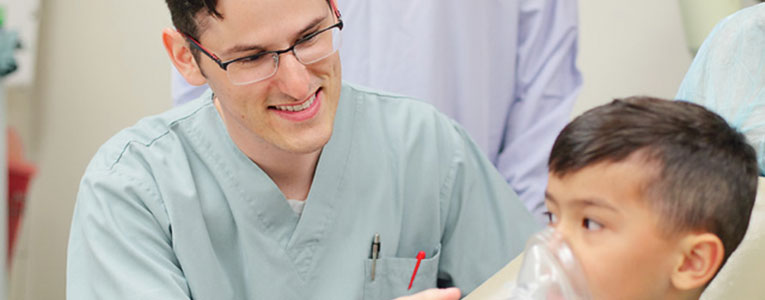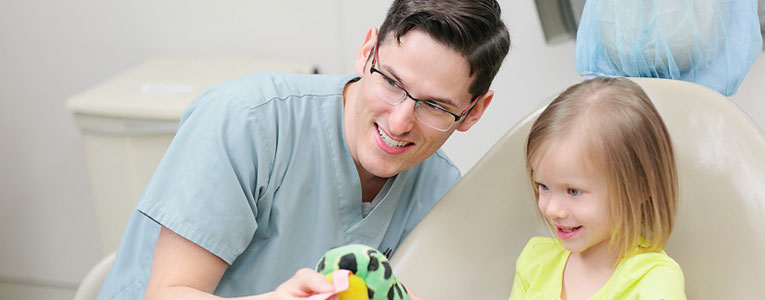Patient Frequently Asked Questions and Answers
Do you have your own office? Can I come to you?
We are a mobile anesthesia service, we bring anesthesia to the office of your current dentist. We work with patients and dentists throughout the greater Anchorage area. This allows for greater access so that everybody can receive the benefit of anesthesia in the dentist’s office.
What age groups can have anesthesia?
Most everybody can safely receive anesthesia. Dr. Michaud is experienced and specifically trained to care for patients of all ages. We routinely care for pediatric patients as well as adults and geriatric patients. If you have any specific concerns about who can receive anesthesia please feel free to give us a call.
Do you treat patients with special needs?
Yes. Dr. Michaud has provided anesthesia for many patients with special needs and has helped them to access the dental care they need.
Will the anesthesia or dentistry hurt?
The anesthesia itself is painless and very effective at minimizing pain from the dental procedure. You will be comfortable throughout the procedure and recovery. Your dentist will send you home with a prescription for pain medication if your procedure necessitates it.
How soon can I go back to work or school?
Most patients feel awake and alert about thirty minutes after waking up. However, it’s important to know that even though you feel okay the anesthesia might still affect your ability to drive and make important decisions. To be safe, you should plan on resting, avoiding important decisions, and not driving for 24 hours after your anesthetic.
What if I'm not sure if it’s right for me?
Only you can make the decision to have sedation or general anesthesia for your dental care. We’re happy to give you all of the information you need to make that decision for yourself. If we haven’t answered your questions here, please give us a call or send us an email. We’re happy to answer any questions.

What is the difference between sedation and general anesthesia?
During sedation cases, we give the patient enough anesthetic to feel comfortable and relaxed. The patient is awake the entire time or is arousable with stimulation, such as a tap on the shoulder.
During general anesthesia cases, we give the patient enough anesthetic to fall completely asleep. If you elect to receive sedation, it’s possible that you might remember certain parts of the procedure.
Both sedation and general anesthesia are safe. Your heart rate, blood pressure, breathing, and oxygenation are constantly monitored throughout the entire case, regardless of the type of anesthetic.
How do I choose between sedation and general anesthesia?
For some patients, sedation is not enough to make them comfortable due to situations such as drug tolerance, young age, medical conditions, or extreme phobia. In these instances, general anesthesia is the best option.
In other cases, patient preference dictates sedation versus general anesthesia. Is being comfortable but awake okay with you? Or would you prefer to be completely asleep?
Is Anesthesia safe?
Yes, anesthesia is very safe. Modern anesthetics have a minimal chance of side effects, especially when administered by a trained professional such as Dr. Michaud.
There are risks associated with many everyday activities and the same is true with anesthesia. Dr. Michaud mitigates these risks by using safe drugs, thorough monitoring, and a background of valuable experience to provide a good outcome for his patients. Sometimes it helps to put the risk in this perspective, driving to your dental appointment carries more risk than undergoing anesthesia.
I'm worried that my medical conditions will make anesthesia unsafe for me.
Having a medical condition doesn’t mean that anesthesia is automatically unsafe for you. Dr. Michaud will take into account all aspects of your medical history when deciding on a safe anesthetic plan tailored to your needs. We may require a personal consultation with you and may ask you to go to your primary doctor to ensure that all of your medications are currently optimized. Making sure that you are in the best possible health you can be in, prior to having your anesthesia appointment it just one of the ways Dr. Michaud strives to make anesthesia a safe and pleasant experience for you.

How do you know that I'm okay if I’m sleeping?
When you are under anesthesia, every aspect of your well-being will be monitored. Dr. Michaud will keep constant track of your heart rate, breathing, blood pressure, and oxygenation throughout the procedure and recovery. This allows the anesthesiologist to correct trends before they become problems, which means that you’ll wake up comfortable and happy.
What happens if I am sick on the day of my appointment?
Anesthesia is the safest when you are feeling well. If Dr. Michaud determines that you are too ill for anesthesia you will need to have your appointment rescheduled. You will not lose your deposit.
What are the costs?
The anesthesia fee is determined primarily by the length of the dental treatment needed. Generally your dentist will provide you with an estimate of the costs after they have determined how long your treatment should take. You may call our office (907) 268-3109 and we will be happy to provide you an estimate of the costs.
What forms of payment do you accept?
We accept cash and all major credit cards. We do not accept personal or business checks.
When is my payment due?
Prior to your appointment, on the day of scheduling, a $500 deposit will be charged to reserve your anesthesiologist for that portion of the day. The rest of the estimated treatment cost is due at the end of the case. The deposit is refundable up until 48 hours prior to your appointment.
Will my insurance cover anesthesia in the dentist's office?
We do not bill your insurance but can provide a receipt of the services rendered which can be sent to the insurance company for direct reimbursement. Every insurance plan is different and therefore there is not a clear answer to whether they will reimburse you or not. You will have to check your own insurance provider and determine what if any coverage is available. Our office does not accept Pre-determination of Benefits as payment for services rendered. Payment must be paid in full on the date of service regardless of your insurance benefits.
